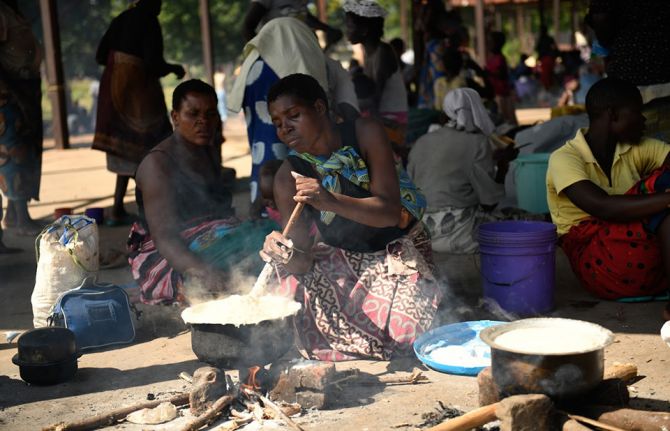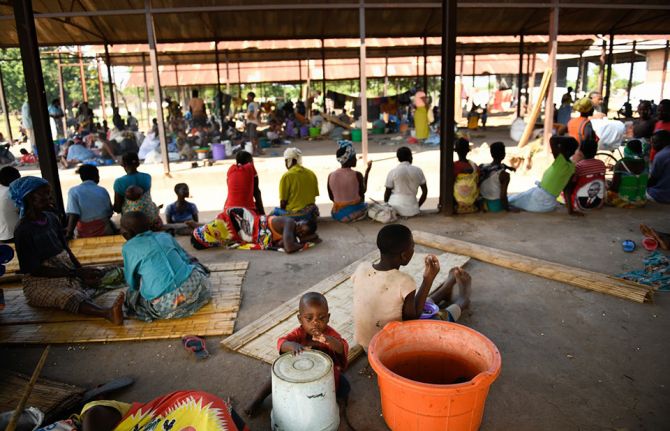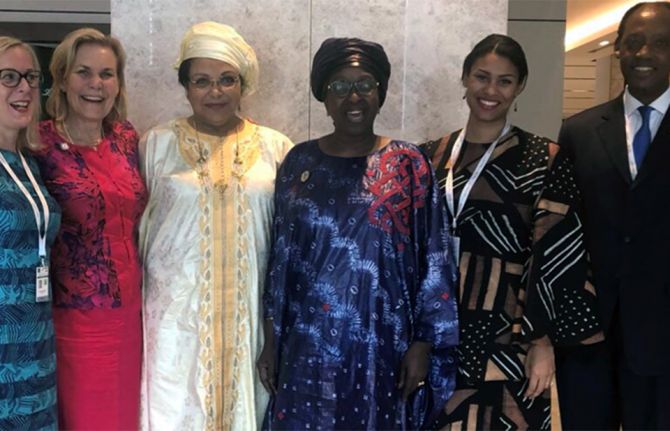



Feature Story
Preventing HIV and sexual and gender-based violence in peacekeeping and humanitarian operations
15 August 2019
15 August 2019 15 August 2019In Africa alone, there are currently seven peacekeeping operations and a large number of other humanitarian operations. Across the continent, 600 million people live in countries affected by fragility, conflict and violence and seven out of 10 women in conflict settings and in refugee populations are exposed to sexual and gender-based violence. In certain contexts, women who have experienced violence are 50% more likely to be living with HIV.
Uniformed personnel working in peacekeeping operations are routinely exposed to a range of health risks during their work, owing to the type of work they do, the locations they are sent to and the conditions in which they often have to serve. The health and welfare of uniformed personnel is therefore a matter of concern. Of equal importance, however, is the well-being of the people among whom the uniformed personnel work.
In order to protect both deployed personnel and civilians, a new code of conduct on preventing and reporting sexual and gender-based violence, including among peacekeeping operations, was drawn up by the African Union in November 2018.
“We urgently need a more overarching, concerted and harmonized strategy to tackle the issues of sexual and gender-based violence and HIV during conflicts and in humanitarian settings,” said Bineta Diop, the African Union Special Envoy for Women, Peace and Security.
The new code of conduct, outlined in the African Union policy on the prevention of and response to sexual exploitation and abuse during peacekeeping operations, prioritizes the elimination of all forms of gender-based violence and puts peacekeeping operations at the forefront of ensuring justice and the protection of vulnerable populations. The challenge now is to implement the code of conduct.
“The African Union has zero tolerance for sexual and gender-based violence and calls for the immediate implementation of policies by member states that use a survivor-centred approach and offer the full range of support services,” said Admore Kambudzi, Director of the Peace and Security Department of the African Union Commission.
In June, the African Union Commission and the UNAIDS Liaison Office to the African Union, in collaboration with the United Nations Office to the African Union, convened the first of a series of meetings to formulate practical recommendations for a collective way forward in addressing sexual and gender-based violence and HIV in fragile settings.
The participants agreed that it is essential to develop a survivor-centred approach to conflict-related sexual violence based on developing the resilience of survivors and to provide mental health and psychosocial support. Including men and boys in ending sexual and gender-based violence will be key to success.
The participants also called for the health and well-being of the uniformed personnel of peacekeeping operations to be ensured, both before and during active service. A protocol on integrating HIV programmes in African Union peacekeeping operations will be finalized and a team of experts to map the current situation in crisis-affected countries, to identify gaps and areas of strength and to suggest a way forward to end sexual and gender-based violence and exposure to HIV will be assembled.
“I urge partners to take action to eradicate sexual and gender-based violence and HIV in fragile settings within the context of the African Union theme for 2019, the Year of Refugees, Returnees and Internally Displaced Persons,” said Clémence A. Habi Bare, the Director of the UNAIDS Liaison Office to the African Union.



